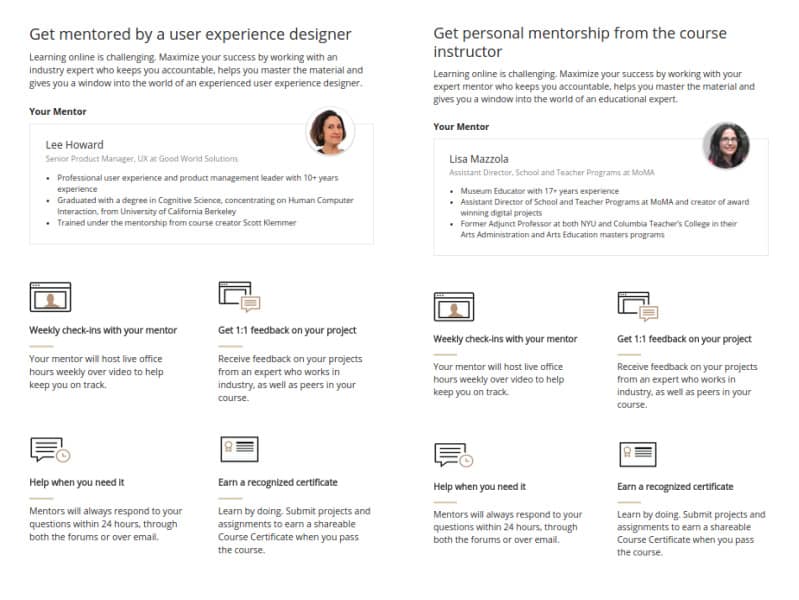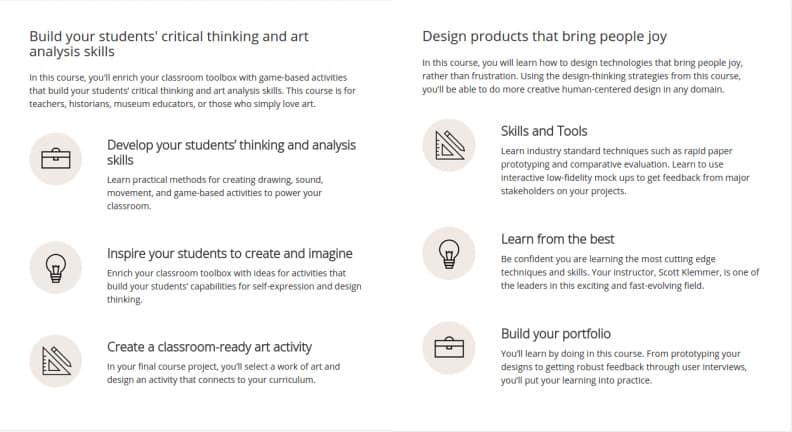Coursera Pilots Mentor-Guided Courses
Coursera launches a mentorship program in which students can get 1-on-1 guidance and feedback from industry experts. We look at this, and also review the current state of expert-mentorship programs in MOOCs.
In March 2014, Coursera piloted a peer-to-peer tutoring program with the class that started Coursera, which was Andrew Ng’s ten week Machine Learning course. A small group of participants from the course’s previous runs, most of whom scored 100% on every programming assignment, had been pre-selected as candidates to offer tutoring services to new students. Tutoring sessions were to be offered over Google Helpouts. Google shutdown Google Helpouts in April 2015.
As far as we know, this pilot wasn’t extended to courses beyond Machine Learning.
Mentor-Guided Courses
One of the big complaints about MOOCs is the lack of guidance and interaction between students and people who are experts on the course subject.
Last week, Coursera launched Mentor-Guided Courses, a new initiative which allows learners to pay extra and get mentor support. “Mentors” in this sense are professionals who work in the industry that a given eligible course is based upon.
A mentor guided course will normally cost $248, but they are currently being offered at $149, which is a 40% discount. Students who sign up for a mentor guided course get 1:1 project feedback, email/forum support, and access to live weekly office hours.
Class Central did some further digging and figured out that there are currently ten mentor-guided courses. Each course is 3–4 weeks long and has 50 slots for mentor/mentee guidance. Those courses are:
- Mastering Data Analysis in Excel
- Fundamentals of Graphic Design
- HTML, CSS and JavaScript
- Object Oriented Programming in Java
- Microeconomics: The Power of Markets
- Programming and the Web for Beginners
- Ruby on Rails: An Introduction
- Human-Centered Design: an Introduction
- Fundamentals of Project Planning and Management
- Art & Activity: Interactive Strategies for Engaging with Art
Different Approaches, Same Destination?
Udacity had launched coaching way back in September 2013, but that program later morphed into Nanodegrees. For the last two years, Udacity has focused on scaling 1:1 feedback and coaching while Coursera has focused on scaling content. Now, in 2016, it looks like their positions are reversed.
Udacity has been able to scale 1:1 feedback by hiring Nanodegree graduates as Project Reviewers. It has built an army of graders all around the world and has reduced its average feedback time to two hours. Udacity currently only has 12 Nanodegrees, and has plans to increase the number of Nanodegrees to 30+ by the end of 2016.
Coursera, on the other hand, has created 100+ Specializations with the help of its university partners, and is now looking to scale mentorship.
Tags









Michael Lipman
Any idea what mentors get out of it? Payment, recognition, something else? Or if Coursera will also target course graduates as mentors?
Cedric Wang
It might be…. I used to be mentor of a MOOC I’ve graduated from.